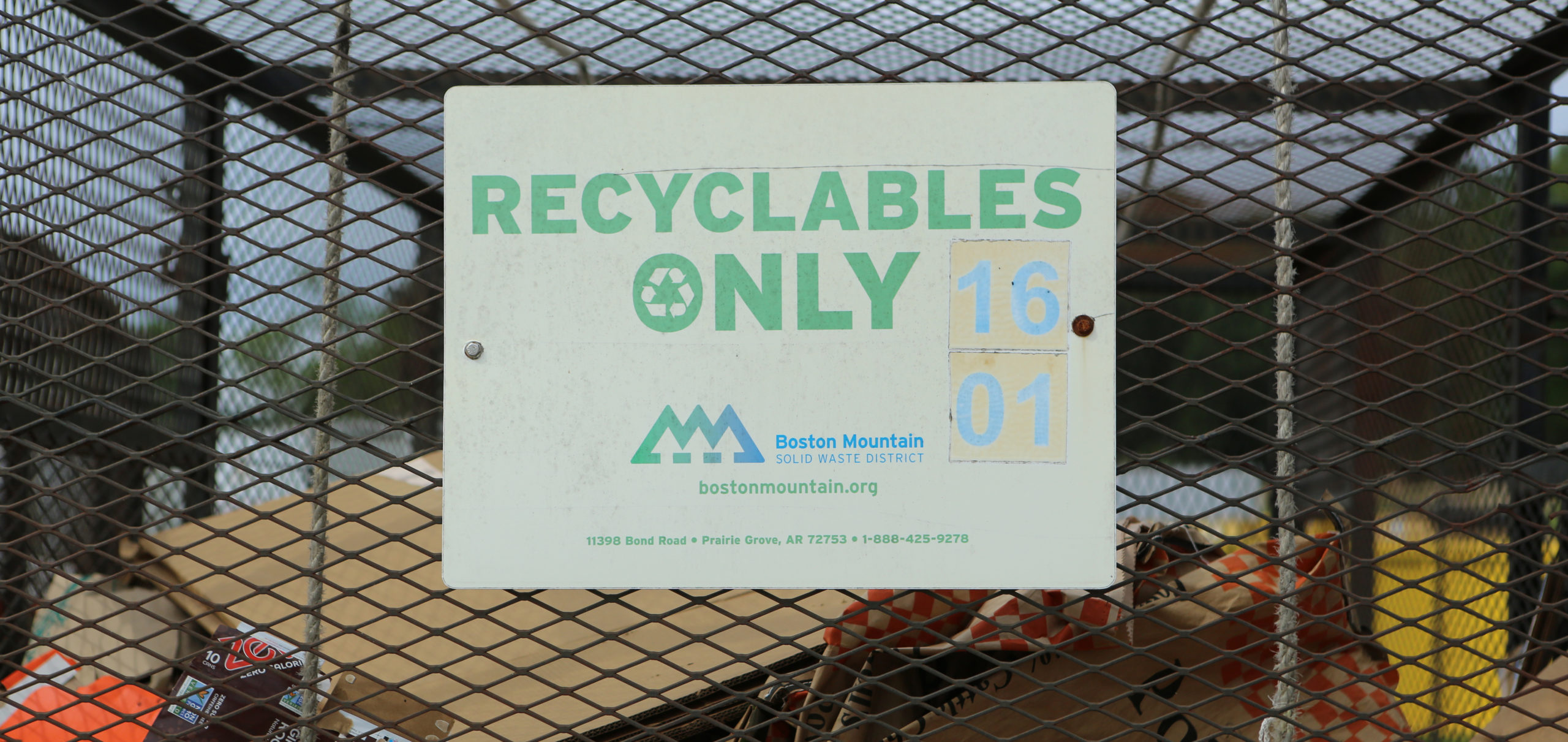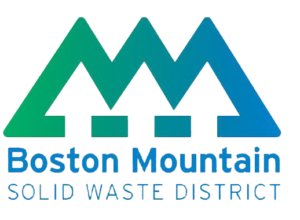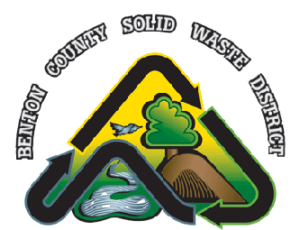Northwest Arkansas’ single-stream curbside recycling, the residential service where you throw mixed recyclables together into a cart that a truck collects, has a massive contamination problem.
Last year, 43% of what residents in Bentonville, Rogers, Springdale and other cities put into their curbside carts was unrecyclable garbage, according to Marck Recycling, which sorts and resells most of the region’s single-stream collections. That’s around double the typical expected contamination across the U.S., though estimates vary.
The figure is a key takeaway from the 2023 Regional Recycling Report, the second annual compilation of the region’s recycling efforts. Community and nonprofit programs in Benton, Washington and Madison counties together processed more than 45,000 tons of recyclable materials in 2022, the report shows.
Most of that material was reused as intended. At least 12,000 tons of cardboard went into more cardboard and other paper products. Almost 2,000 tons’ worth of glass bottles and jars were recycled into new bottles or fiberglass. Hundreds of tons of e-waste were carefully picked apart for the various metals, plastics and glass within.
But thousands of those tons went to the landfill, either because they were simply the wrong type of material or were spoiled by the same. The contamination might have been inside unemptied food containers, for instance, or tied up in a plastic bag (empty bags can be recycled only through specific drop-off locations and should never be in a curbside cart). It might have been glass bottles, which aren’t accepted curbside in most NWA cities. It might have been plain trash that someone, unwittingly or deliberately, put in the wrong bin.
The problem is not universal — recycling drop-offs have on-site staff to help address it, and a few local curbside programs like Fayetteville’s sort out the contamination immediately at the curb. But the problem affects the entire region because separating and landfilling the bad stuff makes recycling more difficult, less successful and more expensive — the opposite of what every recycling program and participant wants. The city of Rogers recently bumped up fees and enforcement in response, which is a common tactic.
The issue is also persistent — many local recyclers have pointed to the COVID-19 pandemic as a contributing factor, thanks to more time working from home and similar patterns. But the pandemic’s influence has faded, and 2022’s contamination actually went up slightly from the year before.
The situation is never hopeless. With helpful and widespread education, anyone can recycle properly. NWA Recycles and its partners in the region work daily to reach the public and communicate better with a variety of communities in a variety of ways. Earlier this year NWA Recycles applied for a U.S. Environmental Protection Agency recycling education and outreach grant that could supercharge this work.
Find out what to recycle in your community on this website — and share it with someone you know. Are you recycling the right things? The only way to know is to check here or contact your individual program.
The 2023 regional report is the second published by NWA Recycles and includes several programs that weren’t included in the first, such as Madison County and the bike-recycling nonprofit Pedal It Forward. It also includes a directory of the area’s recycling-related organizations and businesses for the first time, guiding communities and businesses to available services.













